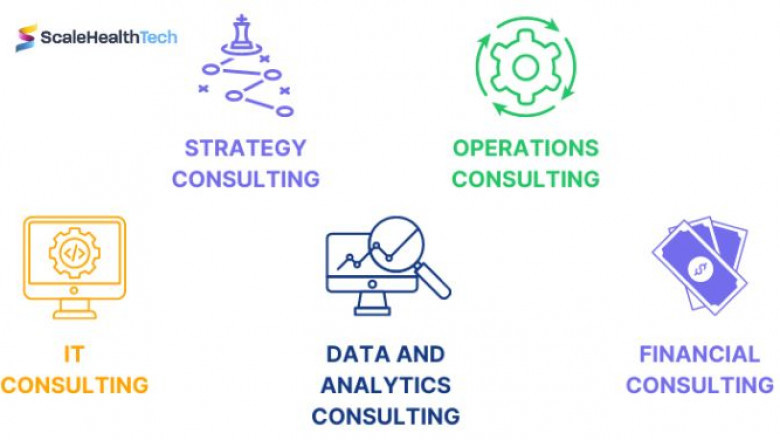views
In today’s fast-evolving healthcare landscape, ensuring seamless communication and data exchange between various healthcare systems is more important than ever. This capability, known as interoperability, allows healthcare providers to share accurate, up-to-date patient information across platforms, improving patient care and operational efficiency. Let’s explore why interoperability is crucial for modern Healthcare Systems and how it impacts patient outcomes, cost savings, and overall healthcare delivery.
What is Healthcare Interoperability?
Healthcare interoperability is the ability of different healthcare systems, devices, and software applications to exchange and use patient data effectively. This can include everything from Electronic Health Records (EHR) systems to lab results, imaging data, and other medical information. The goal is to create a connected, seamless network that allows healthcare professionals to access the right information at the right time.
There are three key levels of interoperability:
- Foundational Interoperability: The basic ability of one system to send data to another.
- Structural Interoperability: Ensures that the data exchanged is in a consistent format and can be understood by the receiving system.
- Semantic Interoperability: Ensures that the data exchanged is interpreted accurately and used meaningfully.
Why is Interoperability Crucial in Healthcare?
1. Improved Patient Care
Interoperability allows healthcare providers to access comprehensive, up-to-date patient information. This ensures that doctors, nurses, and specialists have the full picture of a patient’s medical history, allergies, medications, lab results, and past treatments. With accurate and complete data, healthcare professionals can make better-informed decisions, leading to fewer errors, more precise diagnoses, and improved patient outcomes.
For instance, if a patient visits a new doctor or emergency room, their medical records can be accessed quickly, saving time and preventing unnecessary repeat tests or procedures.
2. Enhanced Coordination Between Healthcare Providers
Patients often see multiple specialists, visit different clinics, and receive care at various facilities. Interoperability enables these healthcare providers to easily share patient information, ensuring better coordination and collaboration. When healthcare teams have access to the same data, they can work together more effectively, reducing the risk of fragmented care and improving the patient experience.
By sharing data in real time, healthcare providers can ensure that a patient’s care is consistent and well-coordinated, reducing duplication of efforts and minimizing treatment delays.
3. Cost Savings
The lack of interoperability can lead to inefficiencies like redundant tests, repeated treatments, and extended hospital stays, all of which drive up healthcare costs. Interoperability helps reduce these inefficiencies by allowing healthcare organizations to share patient data quickly and accurately.
For example, if a patient’s test results are already available in their medical record, there’s no need for another doctor to order the same test. This saves both money and time for patients and providers alike, making healthcare more affordable and efficient.
4. Better Data Management and Decision Making
Healthcare generates vast amounts of data daily. Interoperable systems allow organizations to aggregate and analyze data from multiple sources, giving healthcare providers a clearer understanding of patient health trends, treatment outcomes, and population health patterns.
This improved data management enables healthcare organizations to make more informed decisions, predict potential health risks, and ultimately improve patient care. For public health organizations, having access to interoperable data also helps in monitoring health trends and responding to health emergencies, such as outbreaks or pandemics.
5. Regulatory Compliance
Healthcare is highly regulated, with strict laws governing patient data privacy and security, such as HIPAA in the United States. Interoperable systems are designed to meet these regulatory requirements, ensuring that data is exchanged securely and only with authorized parties.
Compliance with these regulations is crucial not only for protecting patient privacy but also for avoiding costly legal penalties. Interoperability enables secure, regulated data sharing between healthcare providers while adhering to the necessary standards.
Challenges to Achieving Interoperability
While interoperability offers many benefits, there are still challenges to achieving full integration in healthcare. Some of these challenges include:
- Lack of standardization: Different healthcare systems often use incompatible formats or data structures, making it difficult to exchange information seamlessly.
- Data security concerns: As more data is shared, protecting patient information from cyber threats becomes increasingly important.
- Cost and complexity: Implementing interoperable systems can be expensive and time-consuming, especially for smaller healthcare organizations.
The Future of Healthcare Interoperability
The future of interoperability looks promising, with advancements in technologies like FHIR (Fast Healthcare Interoperability Resources) helping standardize data exchange. As healthcare providers and technology vendors continue to prioritize interoperability, the healthcare industry will move closer to a fully integrated system where data can flow freely and securely between all parties involved.
Conclusion
Interoperability is at the core of a modern, efficient healthcare system. It enables better patient care, enhances collaboration among healthcare providers, reduces costs, and supports regulatory compliance. While challenges remain, the push for more interoperable systems is transforming healthcare, ensuring that patients receive the best possible care, whenever and wherever they need it. Embracing interoperability is key to building a connected, patient-centered healthcare future.






















Comments
0 comment